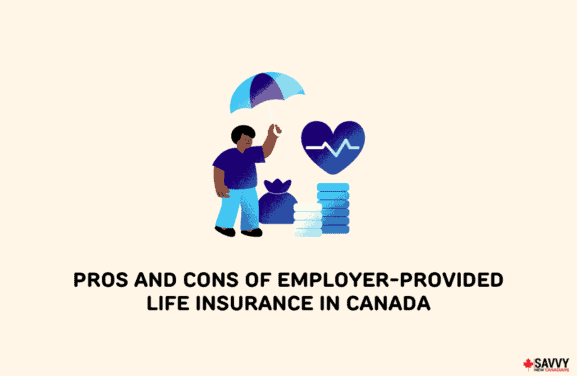Most of the time, life insurance payouts in Canada are tax-free. However, there are a few instances where you might have to pay taxes on life insurance, such as when the policy earns interest or generates income.
This article covers everything you need to know about how taxes work on various life insurance payouts in Canada, including whether policies can be tax deductible.
Key Takeaways
- In Canada, most life insurance payouts are tax-free, except when you access the cash value, earn dividends from the policy, or your beneficiaries receive interest earnings.
- Life insurance premiums are generally not tax-deductible for individuals, but when used as collateral for a business loan, they can become eligible for tax deductions.
Is Life Insurance Tax Deductible In Canada?
In general, life insurance premiums are not tax deductible in Canada. However, there are specific situations in which you can make your insurance premiums tax deductible.
For both individuals and businesses, life insurance premiums, or a portion of them, can become tax deductible when the insurance policy is used as collateral for a business loan.
Another instance where life insurance premiums can be tax deductible is when businesses cover the cost of group term life insurance for their employees and classify these premiums as business expenses.
Is the Cash Surrender Value of Life Insurance Taxable in Canada?
While the cash surrender value of whole life insurance policies grows tax-free, they can be taxed when you access the money through a loan, a withdrawal, or by surrendering the insurance policy.
You’ll only be taxed on the portion of your policy payout that exceeds its Adjusted Cost Basis (ACB) and not the entire amount you receive.
Is Group Term Life Insurance Taxable in Canada?
Group term life insurance payouts are not taxable in Canada since they only provide a death benefit, which is always exempt from taxation. However, they can be taxed when the policyholder doesn’t name a beneficiary.
Without a beneficiary, payouts go through the insured person’s estate, potentially exposing it to probate fees and additional costs or taxes.
When Can Life Insurance Be Taxable in Canada?
Here are instances when life insurance can be taxable in Canada.
Access Your Cash Value
If you access your cash value through a withdrawal, a loan, or by surrendering your insurance policy, your life insurance can be subjected to taxation.
How much you’ll pay in tax will vary based on various factors, so it’s best to consult with a licensed financial consultant if you plan to access your cash value balance.
Your Insurance Earns Dividends
Whole life insurance policies can earn dividends throughout their lifetime. When reinvested back into the policy, these dividends aren’t taxed. However, when they’re cashed out or used to supplement a retirement income, for example, insurance dividends can be taxable.
Beneficiaries Get Interest Earnings
If your beneficiaries receive your policy’s interest earnings along with the death benefit, this interest income can be subject to tax.
No Beneficiaries
Insurance payouts that aren’t assigned to specific beneficiaries and go through the insured person’s estate can be subject to tax and other related fees.
Can You Claim Life Insurance on Your Tax Return?
You can report life insurance payouts on your tax return, but in many cases, doing so is not necessary. If you’ve only received a death benefit, for example, you typically do not need to report the lump sum you receive as income.
Moreover, for individuals, insurance premiums are often considered a personal expense, so they won’t affect your tax returns either.
If your circumstances necessitate the inclusion of life insurance on your tax return, such as when you access your cash value or when your policy earns dividends or interest, it’s advisable to consult with licensed professionals, as the taxation of insurance policies can be complex and vary widely.
FAQs
Yes, some insurance policies are taxed in Canada. Although term life insurance policies are generally not taxed unless the policyholder didn’t choose beneficiaries, the payouts of whole life insurance policies, except the death benefit, can be subject to tax.
The tax rate on insurance premiums in Canada varies depending on your province/territory of residency. For example, the premium tax rate for life insurance policies is 2% in Ontario and 9% in Quebec.
Life insurance’s death benefits are not taxable in Quebec. However, other insurance payouts, such as cash value and interest earnings, may be taxed by the province.
Yes, foreigners can buy life insurance in Canada if they’re Canadian residents or have a working or student permit in the country. Those who are only temporary visitors may apply for travel insurance but not life insurance.
Related:




I like your periodical. One question on insurance. I pay for an insurance policy for my mum, (thus I am the owner) that is fully paid up. Due to funeral costs rising yearly my plan is to cash in this policy and pay the funeral costs now to avoid any funeral cost increase. Will I be subject to reporting this cash payout on my income tax return?
..